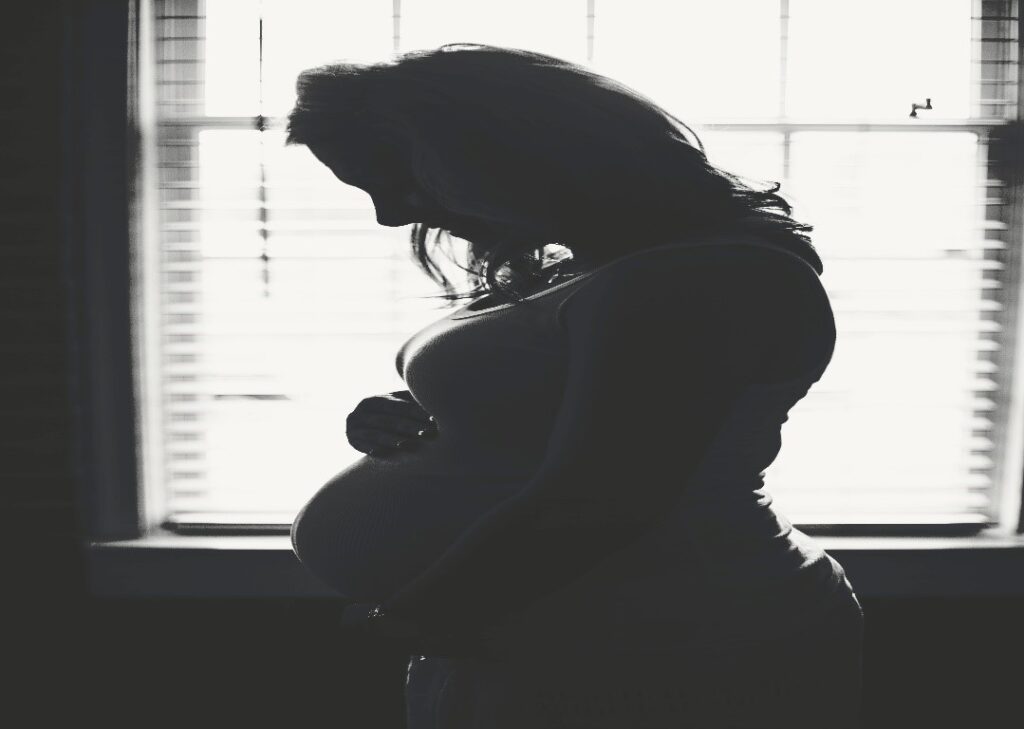Throughout pregnancy, the body goes through several adjustments. Your body must react as your baby develops. This can sometimes result in strange pains and sensations. Sciatic nerve discomfort is a common complaint among expectant mothers.
It’s also known as sciatica or lumbar radiculopathy. Its symptom is a radiating pain that radiates down to the back of your thighs from the sciatic nerve. This is present in the lower spine. The sciatic nerve is your body’s biggest and the major nerve in your legs.
Inflammation of the sciatic nerve, which splits off your spinal cord in your lower back and goes past your hips and beneath your legs, causes sciatic nerve pain. This massive nerve transmits feelings such as pressure, warmth, and perhaps, agony to the lower spine, legs, and foot. Here is a complete guide about sciatic nerve pain during pregnancy.
1. Symptoms Of Sciatic Nerve Pain
Sciatica causes soreness and aches that vary from minor to terrible. You may have tingling in one section of your body while experiencing pain in another. Among the signs and symptoms are:
A burning feeling in the butt cheeks and lower spine. Pain that runs down the back of your thigh from your groin. A sharp discomfort that is comparable to an electric shock. Coughing, sneezing, or sitting for long periods might aggravate the pain. In one leg or foot, numbness, muscular weakness, or tingling are also its symptoms.
2. Reason
When the spine experiences any troublesome pressure, sciatica develops. This pinches the sciatic nerve, resulting in inflammation, tingling, and discomfort. Mostly the reason for this is a herniated disc or an outgrowth of bone on your spine called a bone spur.
Maternity can also induce spinal pressure, which can impact the sciatic nerve. The body produces a hormone known as relaxing while you’re pregnant.
Loosened ligaments and a developing uterus, on the other hand, might cause your center of gravity to alter and squeeze the sciatic nerve, causing shooting sensations down your legs. Throughout your pregnancy, you may have more sciatic pain. Lower back discomfort and sciatica issues are quite frequent. Sciatica is most common in the third trimester, but pain can happen at any time throughout your pregnancy.
The weight of your kid increases as he or she develops, putting strain on muscles and joints that are already weak. The posture of the newborn can sometimes induce sciatic nerve pressure. This discomfort might come and then go, but for some women, it can be chronic. Although it may not be pleasant for a mom, you may be certain that the baby will remain safe from the pressure and agony.
3. Things To Do
Sciatica heals slowly and needs rest. Pain is frequent, but excruciating pain is uncommon. Certain over-the-counter (OTC) drugs may assist if the discomfort is unbearable. Whenever you take any drug, check with your doctor to make sure it didn’t damage your baby. It can be stressful to deal with chronic bodily aches, but there are several simple home treatments you can try to help relieve the pain:
Use a warm shower or a heat pack to relax. Heat relieves tense muscles, which are generally a result of bearing greater weight. A cold pack applied to your lower back and posterior pelvis might also be beneficial.
It’s easy to curl up into a ball whenever your body aches, and it’s enticing to do so. In the long term, though, mild exercise is generally more beneficial. Going for a stroll might sometimes be beneficial. A pregnant yoga lesson can also help to relax your muscles and calm your thoughts. However, avoid excessive bending or twisting.
Swimming and other low-impact sports may also be useful. Pay attention to your body and notice any actions that cause your sciatic nerve to strain. If your profession needs you to stand for lengthy periods, avoid heavy lifting and take frequent rests. This will help you with your back pain.
Prenatal massage can relieve stress, enhance blood flow, and even control hormones in pregnant women. To relieve sciatic nerve pain, seek out a specialist who can assess your situation and prescribe stretches and strength-building activities. Lay on the side of your body that doesn’t ache while you’re lying down. This relieves the pressure on the irritated nerve. To assist your hips and legs, use a complete body pillow.
You may also perform a massage at night with a tennis ball. If you’re still premature in your labor, you may roll out the stiffness by lying on your back with something like a tennis ball beneath your lower spine. We suggest doing this while resting against the back of the seat as your maternity advances.
If you work at a table, make sure you don’t sit for lengthy periods. Get up and go for a stroll regularly. Heat pads on your lower spine or hips assist prevent tension from building in those muscles. It’s also a good idea to be aware of your posture while seated to assist avoid inflammation around your sciatic nerve.

If your sciatica lingers after pregnancy, keep these practices in place. After childbirth, some ladies will have complete recovery from sciatic nerve pain, whereas others suffer postpartum sciatica health problems as a result of weaker spine and core muscles. Continue to strengthen your body with modest physical exercise while allowing your body to rest. Consult your doctor if your discomfort persists or worsens during or after pregnancy.
Are you in constant pain due to sciatic pain? Sciatic-stretcher is here to help you. You can use our products to help yourself in getting rid of back pain and sciatic nerve pain. Chiropractic massage can also benefit your back pain and sciatic nerve pain caused due to pregnancy. Contact us to get our products.
